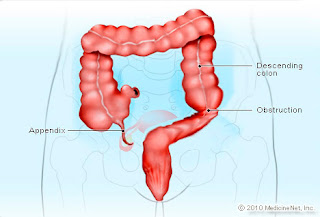INCREASING TREND OF TREATING APPENDICITIS CONSERVATIVELY MAY RAISE DEATH RISK
Prof Dr,DRAM,HIV /AIDS,HEPATITIS ,SEX DISEASES & WEAKNESS expert,New Delhi,India, +917838059592
About twice as many U.S. adults with appendicitis are being treated without an operation compared with 20 years ago, and nonoperative management of an infected appendix is tied to a higher death rate in the hospital, as presented in the American College of Surgeons Clinical Congress 2017.
Acute, or sudden, appendicitis has long been considered a surgical emergency, with an estimated 300,000 cases occurring yearly in the nation.1 However, over the past 20 years several European studies have found that some patients with uncomplicated appendicitis—meaning the appendix has not “burst”—can successfully treat their appendicitis by taking antibiotics alone,such study cahnged practice of treating appendicitis in USA leading to such study by Prof Turnbull of Washington University to find the risk of dying during an appendicitis hospitalization—although still rare—was significantly higher in patients receiving nonoperative management than in patients who had an operation early in their hospitalization,more so in elderly patients.”
 In 135,856 patients with appendicitis from 2010 to 2014, the investigators compared patient characteristics and outcomes. A total of 131,162 patients underwent an early operation—primarily an appendectomy (surgical removal of the appendicitis) on the day of hospital admission or the next day. Another 4,694 patients received nonoperative management, defined as no operation or placement of an abdominal drain (done usually to treat an abscess). Whether these patients received antibiotic therapy was unknown from this dataset, according to Dr. Turnbull.
In 135,856 patients with appendicitis from 2010 to 2014, the investigators compared patient characteristics and outcomes. A total of 131,162 patients underwent an early operation—primarily an appendectomy (surgical removal of the appendicitis) on the day of hospital admission or the next day. Another 4,694 patients received nonoperative management, defined as no operation or placement of an abdominal drain (done usually to treat an abscess). Whether these patients received antibiotic therapy was unknown from this dataset, according to Dr. Turnbull.
The researchers found that the odds of dying, of any cause, during the hospitalization was 2.4 times higher for patients who had no operation compared with those who underwent an early operation. Even after matching the cases in both treatment groups by age, sex, and comorbidity index, the investigators reported a nearly sixfold increased death rate in the nonoperative care group. Compared with 0.08 percent of surgically treated patients with appendicitis, 0.47 percent of the nonoperatively managed patients died in the hospital.
“Our findings suggest that U.S. surgeons are selecting elderly, sicker patients for nonoperative management, possibly because they believe these patients are not good candidates for an operation,” Dr. Turnbull said.“However,” he continued, “these patients are at increased risk of a poor outcome if nonoperative management fails because they lack the physiologic reserve, or ability to tolerate illness.”
- Kidney stones universally present hazard in north india,dillution by water prevent it
- Steroid and placebo effect equally for mild persisting asthma with low sputum eosinophils
- Government wants to fix public healthcare staff shortages with ayush docs: will it work?
- Plea in hc for payment of salaries of edmc, north mcd teachers and doctors
- 7 indian pharma companies named in us lawsuit over inflating generic drug prices
- Woman in up dies after explosion in her mouth during treatment,what is diagnosis?
- Woman in up dies after explosion in her mouth during treatment,what is diagnosis?
- Woman in up dies after explosion in her mouth during treatment,what is diagnosis?
- Air pollution ! mothers organising rally in london,anaesthetist choosing gas,will india follow?
- Cardiac arrest is always not sudden as understood -a study

 Comments (
Comments ( Category (
Category ( Views (
Views (